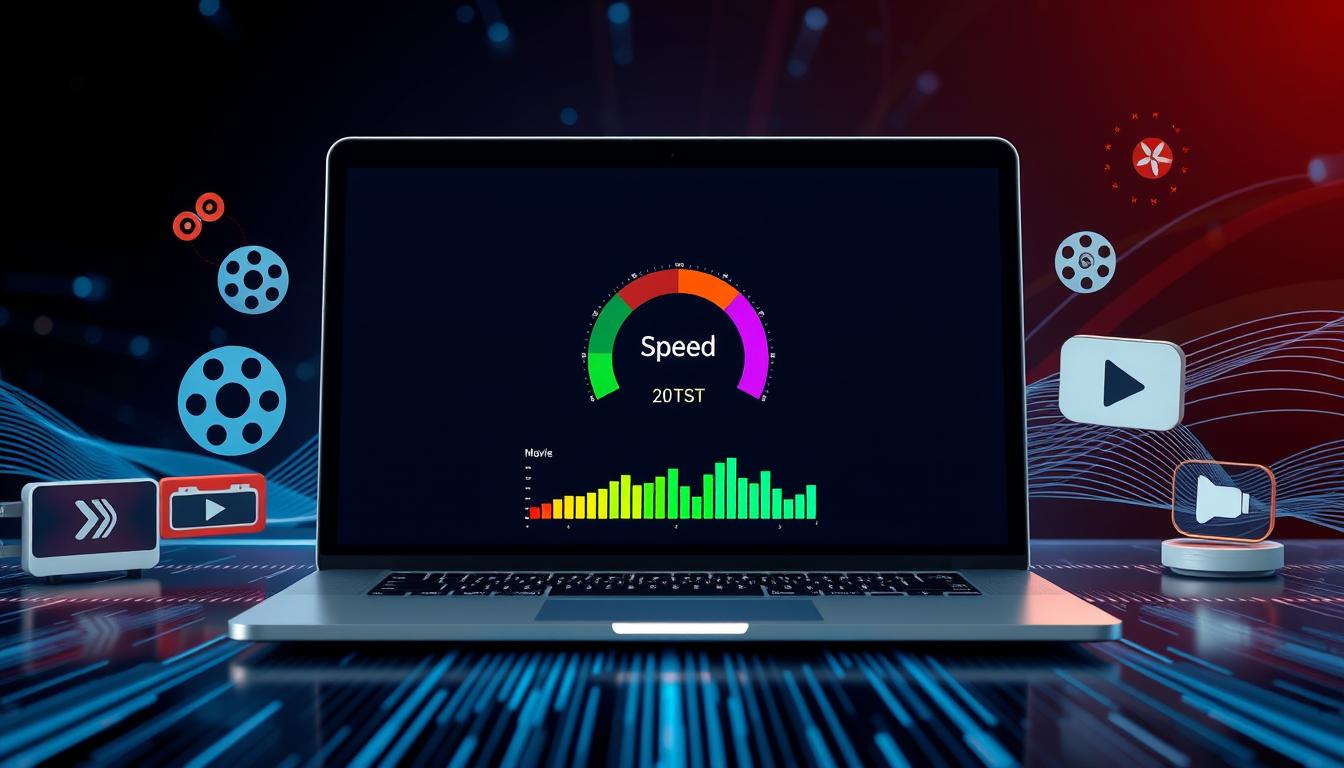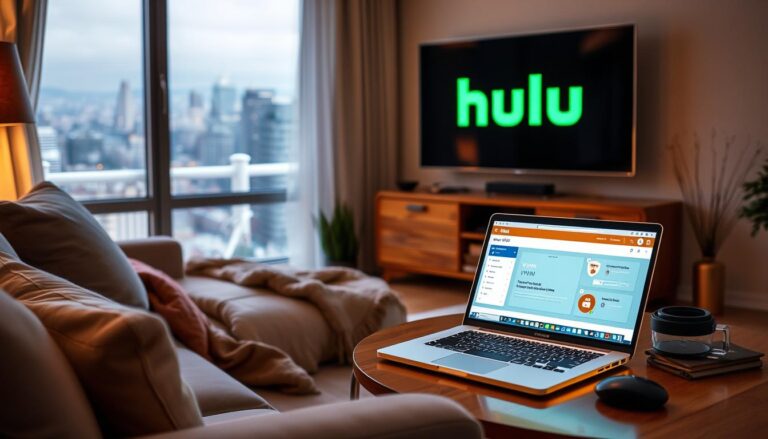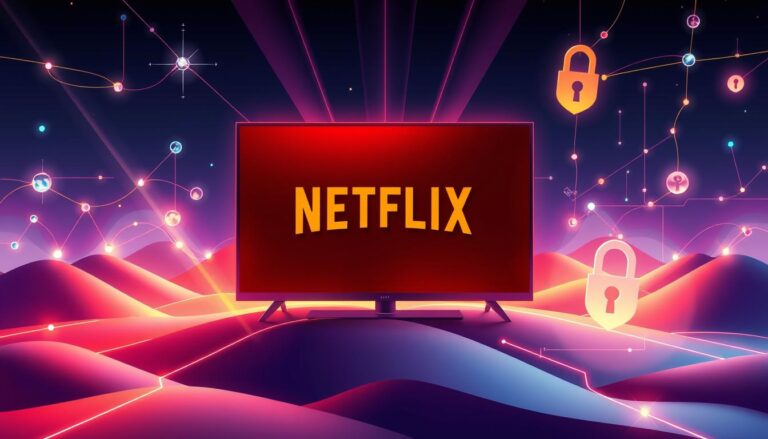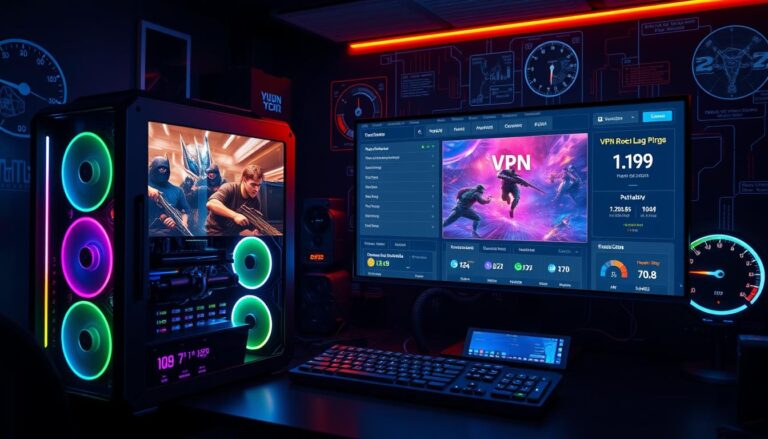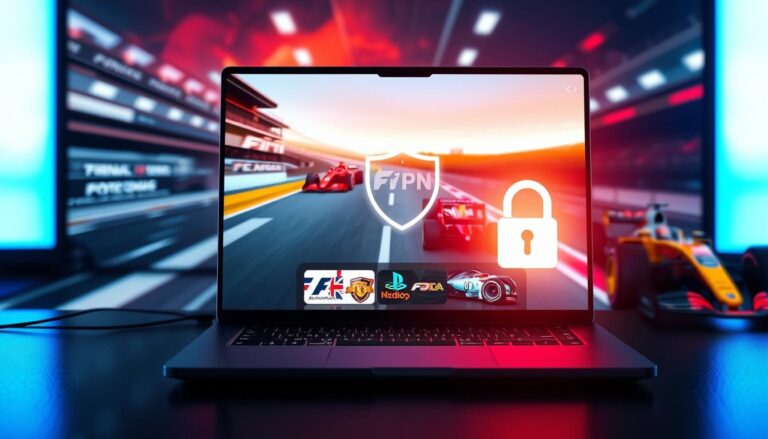VPN Speed Test Guide: Optimize Your Streaming Experience
Today, streaming is how we get our entertainment. We watch movies on Netflix or sports live. A fast internet connection is key. But, using a VPN can slow things down because of encryption and extra distance.
This VPN speed test guide will show you how VPNs affect streaming. You’ll learn to pick the best VPN for streaming speed. With NordVPN, you get over 2,000 US servers and more than 6,700 worldwide. This means better streaming and privacy.
It’s important to choose a VPN that’s fast for streaming. Not all VPNs are made for quick content delivery. NordVPN’s NordLynx protocol is much faster than free VPNs.
Key Takeaways
- Understanding how VPNs impact internet speeds is crucial for optimizing streaming.
- Selecting the best VPN for streaming speed can significantly enhance your viewing experience.
- Conducting regular VPN speed tests ensures you’re getting the fastest possible connection.
- Paid VPNs typically offer better speeds and security compared to free ones.
- Optimizing device and network settings can further improve your VPN speed for streaming.
Understanding How VPNs Affect Streaming Speeds
It’s important to know why VPNs slow down the internet for better streaming. VPNs encrypt data and send it through servers far away. This makes things like gaming and streaming slower.
Many things make VPNs slow down the internet. The VPN protocol you use matters a lot. OpenVPN is fast and secure, while newer ones like WireGuard are even faster.
Also, how far the VPN server is from you affects speed. The farther it is, the slower your internet. NordVPN has servers in 111 countries, helping you pick closer ones for faster speeds.
Internet speeds also change based on where you are. South Korea has super-fast speeds, while the world average is much slower. Countries like Sweden and Japan also have fast speeds, affecting VPN performance.
Here’s a look at average internet speeds in different countries and how VPN speeds vary:
| Country | Average Speed (Mbps) | VPN Impact |
|---|---|---|
| South Korea | 26.7 | Minimal with good server choice |
| Sweden | 19.5 | Moderate depending on server load |
| Norway | 18.8 | Moderate depending on server load |
| Japan | 17.5 | Minimal with good server choice |
Another reason VPNs slow down the internet is how data is sent. Using UDP instead of TCP can make things faster. Split tunneling can also help by only using the VPN for certain traffic.
In short, many things like the VPN protocol and server distance affect streaming speeds. Knowing these can help you use VPNs better for streaming.
Choosing the Right VPN for Streaming
When picking a VPN for streaming, look for ones that are fast. Not all VPNs are the same. Knowing about protocols and server locations helps a lot.
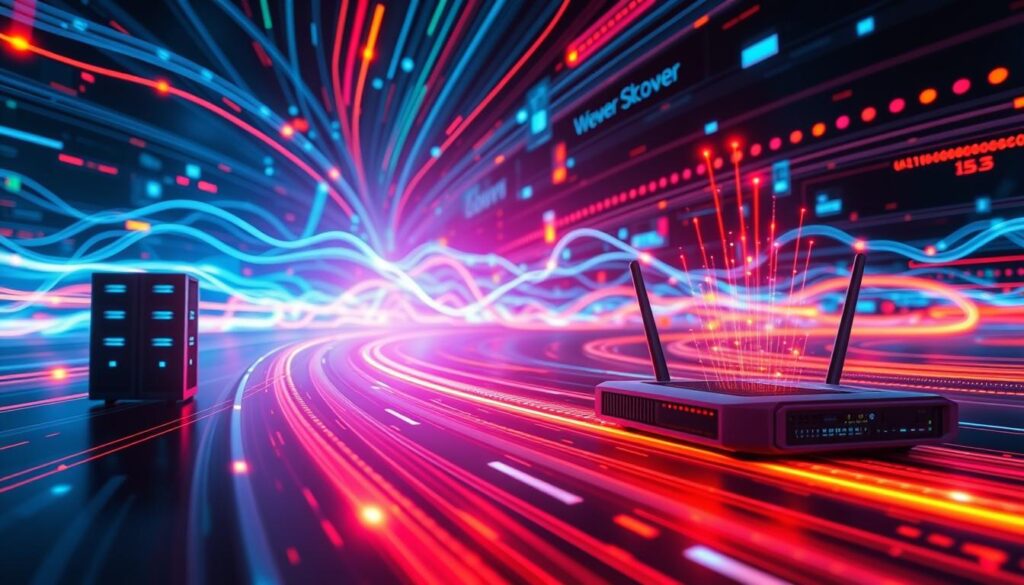
VPNs with High-Speed Capabilities use special protocols. WireGuard is faster than old protocols like OpenVPN. It makes connections quicker and works better. Here are some top VPNs for streaming:
| VPN Service | Speed | Countries/Servers | Cost | Notable Features |
|---|---|---|---|---|
| Proton VPN | Varies | 112 countries/8,700+ servers | $10/month | High-speed capabilities, extensive server network |
| NordVPN | 950 Mbps | 60 countries/5,500+ servers | $60/year | High-speed streaming, 24/7 live chat support, 30-day money-back |
| ExpressVPN | 750 Mbps | 90+ countries/3,200 servers | $13/month | Multiple server locations, strong support, 30-day money-back |
| IPVanish | High | 56 countries/varied servers | $13/month | High-speed, robust encryption |
| Surfshark | High | Global server network | $2.49/month | Unlimited connections, cost-effective |
Choosing a VPN close to you helps. It makes streaming smoother. NordVPN and ExpressVPN are great for this.
Think about cost and support too. ExpressVPN and NordVPN have 24/7 chat and money-back. These are big pluses.
VPN Speed for Streaming
When picking a VPN for streaming, look at how different VPNs work. Most homes have internet speeds of 25-30 Mbps. This is good for watching HD videos and playing games online without a VPN.
But, using a VPN can slow things down. This is because of the encryption and how data is sent.
Reading VPN speed reviews can help you choose. For example, ExpressVPN is often at the top for streaming speed. Many say it keeps speeds high even with strong encryption.
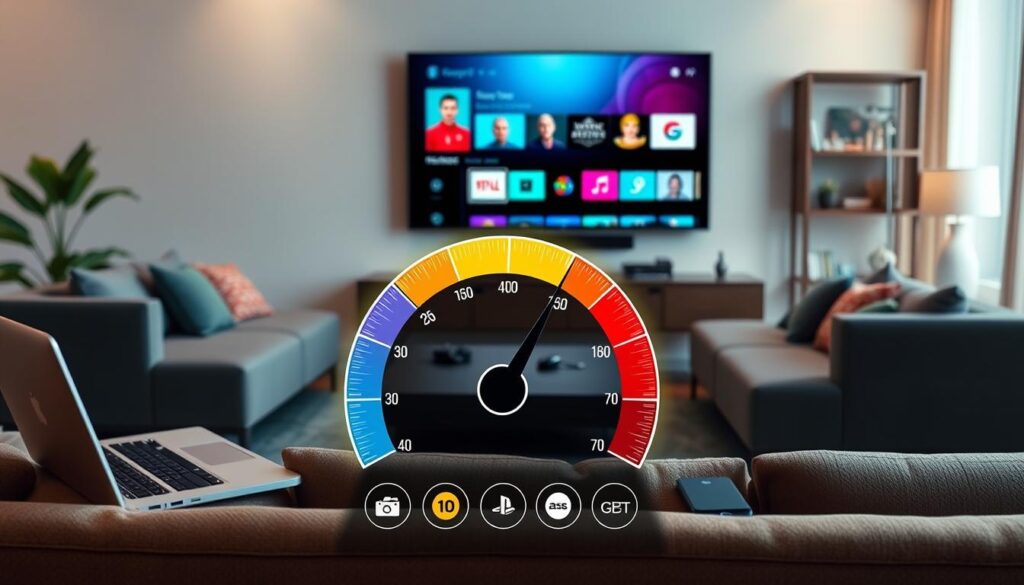
Looking at different VPNs can be very helpful. Here’s a table with some important stats on popular VPNs for streaming:
| VPN Service | Average Speed (Mbps) | Number of Servers | Server Locations |
|---|---|---|---|
| ExpressVPN | 500 | 3,000+ | 105 |
| NordVPN | 480 | 6,700 | 111 |
| CyberGhost | 470 | 7,000+ | 89 |
| Surfshark | 460 | 3,200+ | 65 |
Use tools like Ookla’s Speedtest to check VPN speeds. Testing often helps find the best service for you. For example, NordVPN uses NordLynx to keep speeds high while staying safe.
ExpressVPN and NordVPN are often praised for their fast speeds and many servers.
Think about your internet connection too. Fiber is the fastest, great for streaming. But, even a 10-20% speed drop can still work well if your base speed is high.
For the best streaming, find a balance between speed, security, and server number. High-speed VPNs like ExpressVPN and NordVPN are often recommended. By comparing VPN speeds, you can pick the best one for a smooth streaming experience.
Optimizing Device Settings for Maximum VPN Speed
It’s key to tweak your device settings for better VPN speed. Using Ethernet instead of Wi-Fi can make your connection faster. This is super important for streaming high-quality videos.
Also, close apps you don’t need. They use up your computer’s power and internet. This helps your VPN work better.
Don’t forget about your router’s settings. Modern routers have special features for better internet. You can make your VPN stream smoother by setting your router right.
Look into different VPN protocols and encryption levels. Some, like OpenVPN, are fast and safe. Others, like TCP, are good for certain things. For the best speed, try IKEv2/IPSec or special protocols like Lightway and NordLynx.
By tweaking your device settings, you can really boost your VPN speed. Focus on using Ethernet, managing apps, and adjusting your router. This will make your streaming much better.

